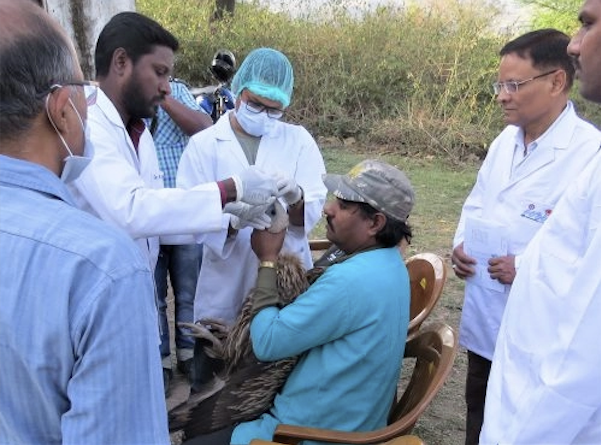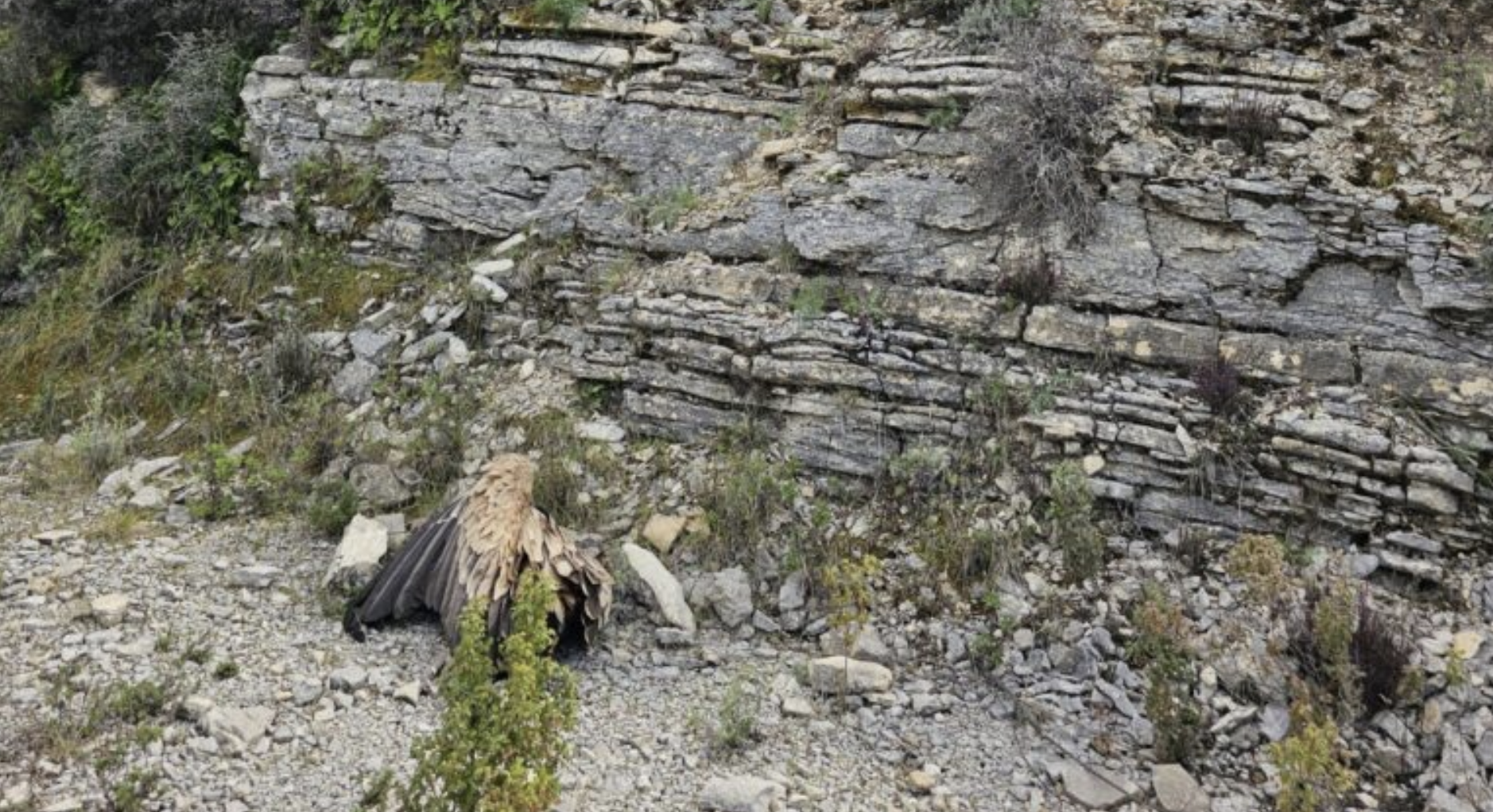
In 2003, scientists discovered that veterinary Diclofenac, a non-steroidal anti-inflammatory drug (NSAID) used to treat livestock, was the leading cause behind the devastating 99% collapse of three South Asian Gyps vulture species. Following this discovery, it was urgent to find vulture-safe veterinary NSAID alternatives to prevent more vulture mortality. But until now only Meloxicam has been identified as a safe NSAID alternative.
Veterinary NSAIDs can cause devastating vulture population declines
Livestock, such as cattle, have been treated with approved non-steroidal anti-inflammatory drugs for years to manage pain and inflammation. But, using certain NSAIDs can have some unforeseen consequences. When vultures feed on animal carcasses previously treated with toxic drugs, they may die. In South Asia, the Gyps vulture populations dramatically collapsed since the 1990s due to the widespread use of Diclofenac for livestock treatment. Not only was this devastating for vultures, but also for society. In India, the absence of vultures led to an accumulation of rotting carcasses, boosting other scavenging species like feral dogs, which, in turn, resulted in the increase of rabies in humans, costing the Indian government $34 billion. Realising the danger of Diclofenac in the market, India, Nepal and Pakistan banned its veterinary use in 2006, and Bangladesh followed suit in 2010. However, it seems that the drug residues are still present in the environment, as well as in livestock and vulture carcasses. The fact that there was only one confirmed vulture-safe NSAID alternative didn’t help. Now, thanks to a recent study, a second alternative exists — Tolfenamic acid!
Tolfenamic acid identified as the second vulture-safe veterinary NSAID

Experts have been trying to identify another vulture-safe NSAID for years now, but with no luck. So, it is with great enthusiasm that a systematic safety testing study has finally identified tolfenamic acid as the second confirmed vulture-safe NSAID after Meloxicam. The study, led by the Indian Veterinary Research Institute (IVRI), the Bombay Natural History Society (BNHS) and the Royal Society for the Protection of Birds (RSPB), gave doses of tolfenamic acid by oral gavage to a total of 38 wild-caught Himalayan Griffon Vultures, along with single captive White-rumped and Long-billed Vultures from the conservation breeding population. The doses represented the maximum possible level that birds would encounter when feeding on carcasses in the wild, which was calculated by diclofenac concentrations found in cattle carcasses in India. In addition, researchers fed four Himalayan Griffons with buffalo meat from animals given double the recommended dose of Tolfenamic acid before dying. Although two of them died, all the other vultures survived without an increase in uric acid levels in the blood, which is what typically signifies kidney failure caused by NSAID poisoning.
It’s time to ban Diclofenac in Europe!
We are very pleased with this development and hope that the veterinary community will start using Tolfenamic acid along with Meloxicam, avoiding any use of other NSAIDs that are not safe or have not been tested yet. Despite the proven adverse effects of Diclofenac on vulture populations, some countries within the EU approved the use of the drug for veterinary purposes over the last ten years, including Spain, home to approximately 90% of the European vulture population. The Vulture Conservation Foundation (VCF), together with other environmental groups, widely advocated for the ban of vet drug Diclofenac in Europe. Following a thorough process that included public consultation with several stakeholders, the EU has recognised that veterinary Diclofenac indeed posed a risk to vultures but considered that the current system of managing livestock in Europe would prevent the drug from entering the vulture food chain. As it turns out, though, a Cinereous Vulture did die from Diclofenac in Spain, proving that veterinary Diclofenac can kill vultures in Spain and Europe. The VCF urges the EU and Spanish authorities to consider a ban, especially now that two safe alternatives exist!
Source: Save Vultures


